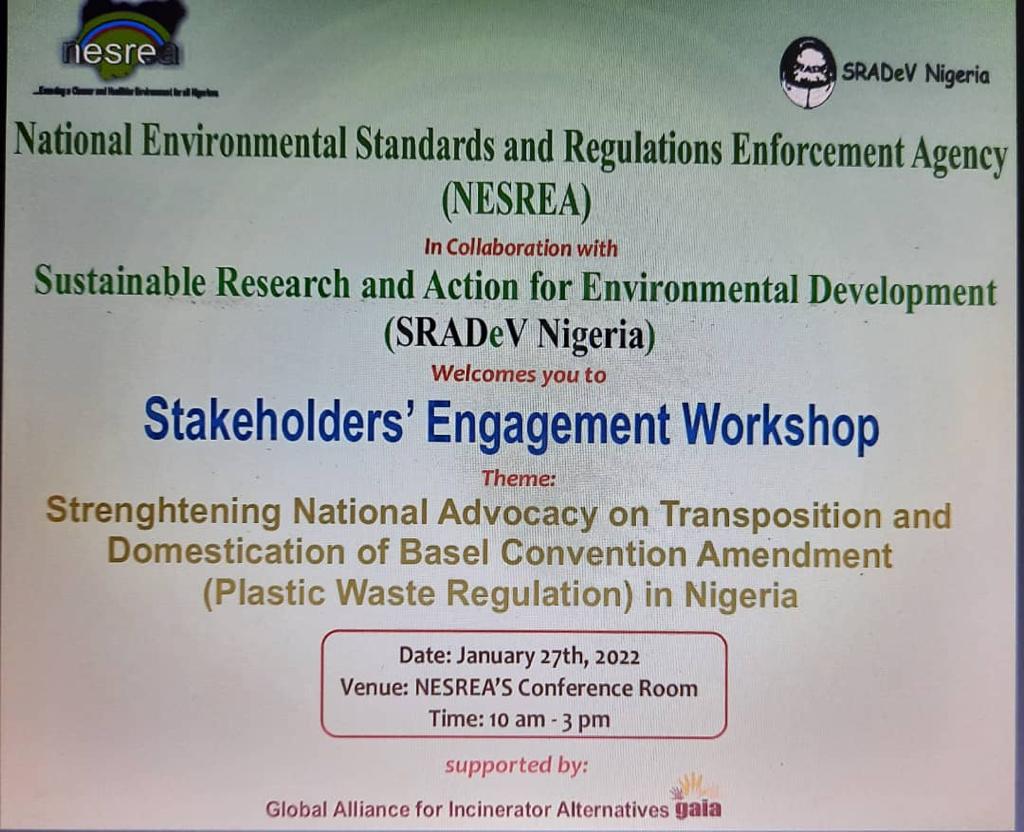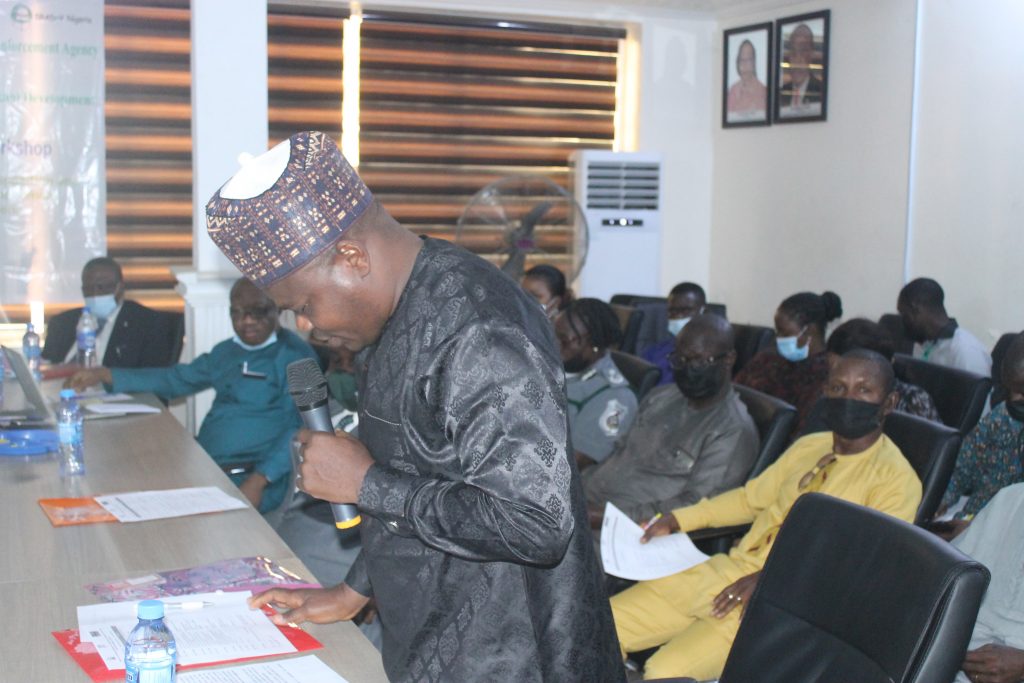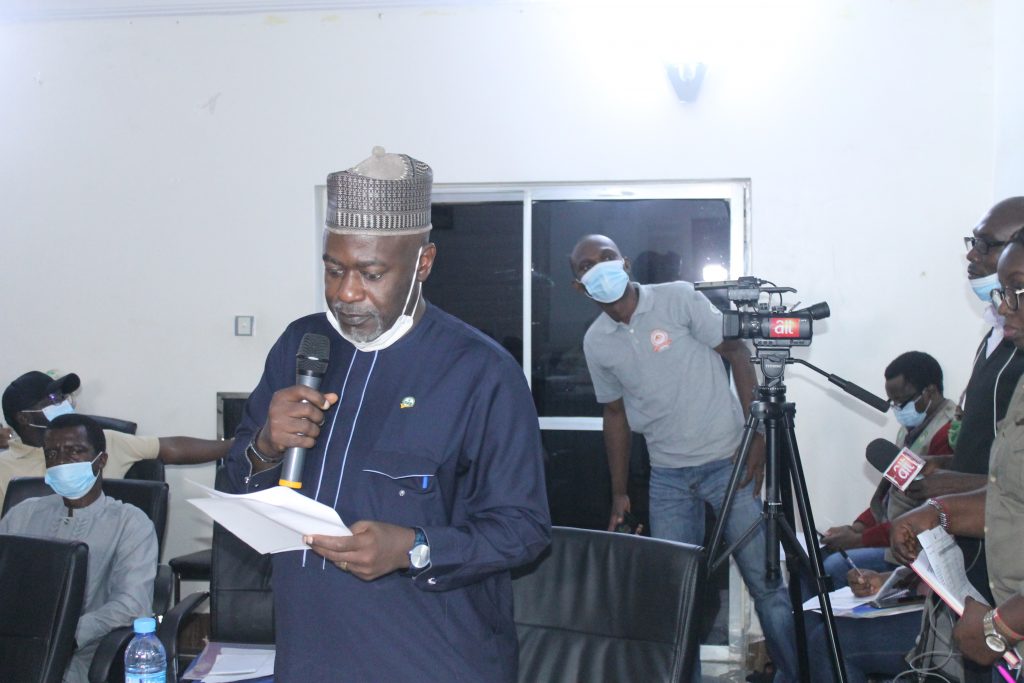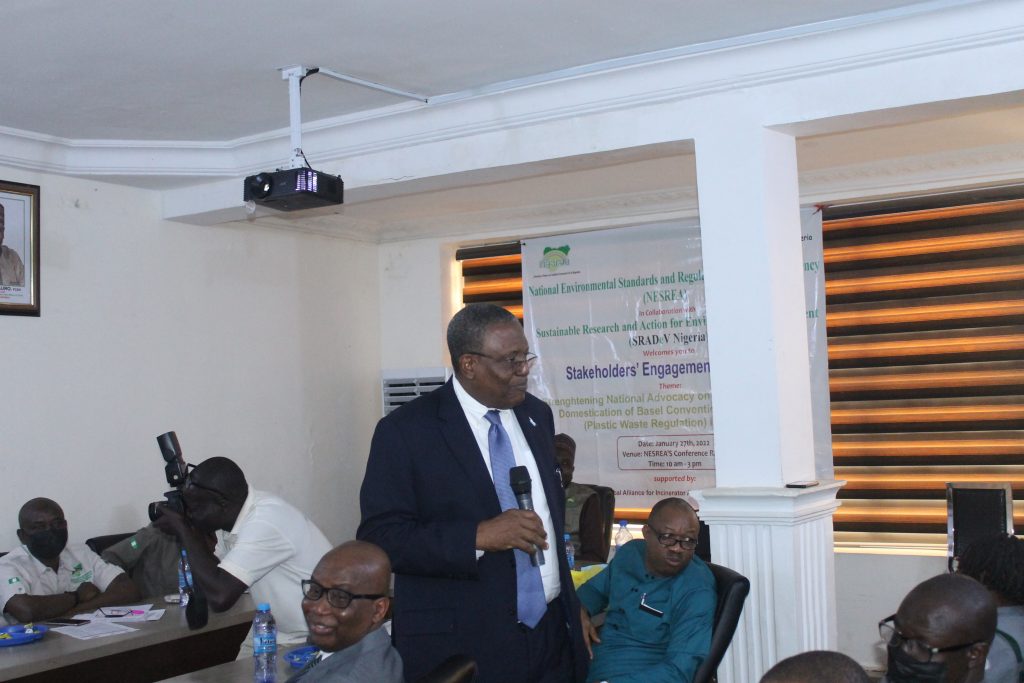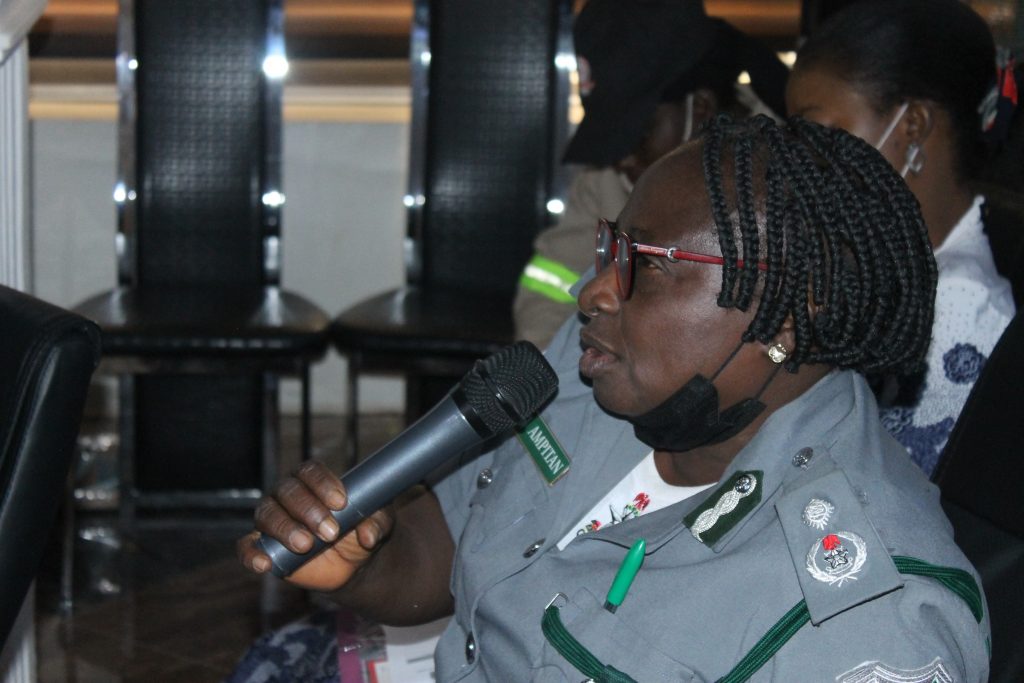SRADeV Nigeria in collaboration with NESREA hosted the first stakeholders’ engagement workshop on the transposition and domestication of the Basel Convention Amendment in Nigeria on 27th, May 2022. The hybrid workshop was well attended by representatives of various Ministries Departments and Agencies including the Federal Ministry of Environment (FMEnv), Federal Ministry of Justice (FMOJ), Standards Organization of Nigeria (SON), Nigerian Customs Service (NCS), FMITI, FCCPC, Non-Governmental Organizations (NGOs), Members of Armed Forces and other Para-Military Agencies, members of the Organized Private Sector (OPS) and a host of other stakeholders relevant to the waste management process was presided over by the Professor Aliyu Jauro; The Director-General of NESREA.
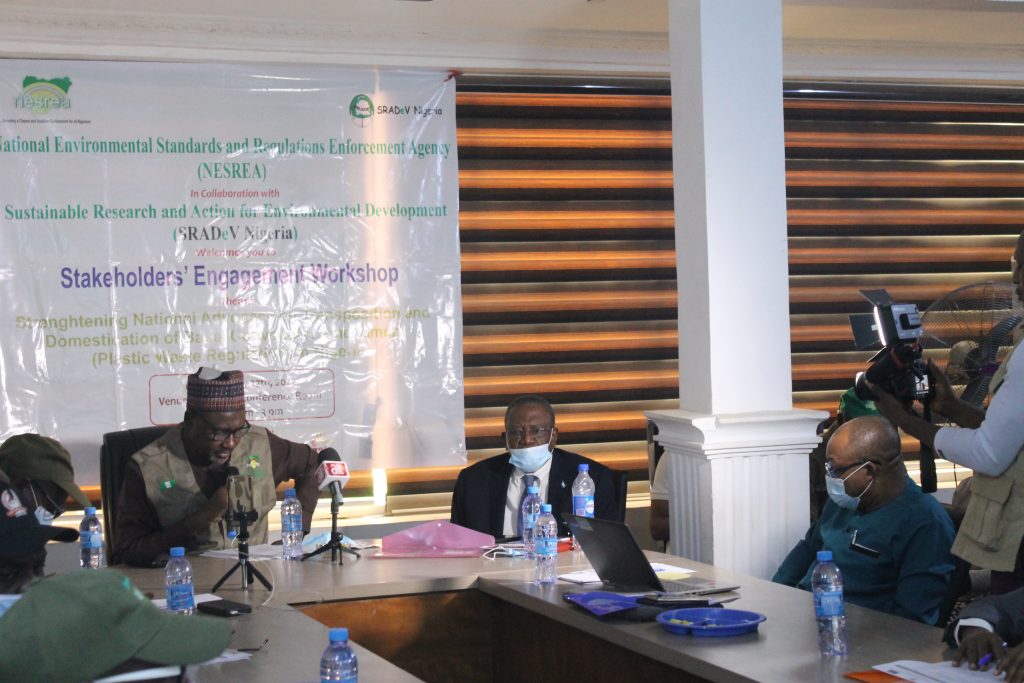
Goodwill messages were received from the ministries in attendance while the first presentation was taken by the executive director of SRADeV Nigeria on the journey so far, followed by presentations from the renowned experts’ Professor Percy Onianwa on gaps of the policy document in relation to the BC Amendment, then the role of stakeholders in the transposition and domestication of the amendments. Questions, comments, and deliberations were taken after these presentations.
Major outcomes and conclusions after these deliberations as read out by Dr. Isa Abdul salam; Deputy Director Inspection and Enforcement.

Control plastic waste should be expanded to incorporate the global trend towards a circular economy to ensure sustainability;
Domestication of Basel Convention as well as the Amendment by Federal Ministry of Environment;
Develop separate national environmental regulations on plastic waste by NESREA;
SON to set contamination limits for plastic waste and consider the range of 0.5-2%;
The regulations should reflect the new amendments to the BC and the peculiarities of our country; and
Relevant MDAs should work with NESREA as the enforcement Agency of the FMEnv to achieve this goal;
To conclude the meeting, it was approved that NESREA should work with Stakeholders to immediately kick start the activities outlined to control plastic pollution in line with the tenets of the circular economy while SRADeV was nudged to continue in its quest to ensure environmentally sound management and control of plastic waste.

